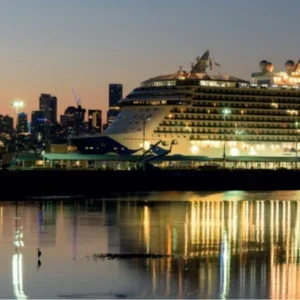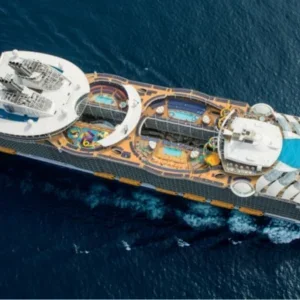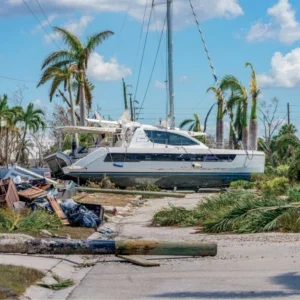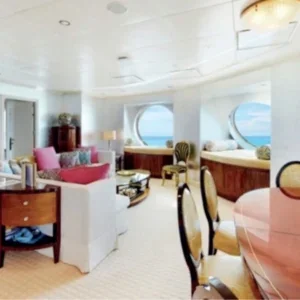Tourists are a rare sight in Sousse. The beaches, hotels and markets, once teeming with holidaymakers, are now largely deserted. A few foreigners might be glimpsed here and there, but most newcomers to the town are police officers. Making sure they’re seen patrolling the streets and manning the many roadblocks built since the attack, they’ve been dispatched en-masse by a national government desperate to reassure the international community that Sousse remains a safe holiday destination.
Yet, without any holidaymakers to guard, this remains a fool’s errand: Tunisia’s corps of Islamist militants is largely uninterested in attacking their fellow countrymen. When Seiffedine Rezgui stepped onto the beach at midday on 26 June and killed 38 innocent holidaymakers, he was the only Tunisian to die that day. The same was largely true of the assault on the Bardo Museum in Tunis on 18 March, when a squad of militants murdered 20 foreign tourists; the three Tunisians killed were members of the security forces. And in October 2013, when a suicide bomber hit a resort not far from the site of Rezgui’s assault, the terrorist killed only himself.
In the minds of Islamic extremists, these atrocities are just battles in the unending war against the kaffir, or ‘unbeliever’. But it’s not a battle confined to Tunisia: in Egypt, ISIS affiliate Sinai Province has been active since the Arab Spring. Although they have mostly limited their assaults against the Egyptian Army, in February 2014 they issued an ultimatum ordering the evacuation of all foreign tourists from the region.
The group subsequently bombed a tourist bus on the Israeli border, killing three South Korean holidaymakers and their Egyptian driver. In June this year, it extended its reach to the south of the country by attempting a suicide bomb attack in Luxor.
Paradise lost
In view of these dangers, all major cruise operators sailing in the Mediterranean have begun to reassess the need to dock in Egyptian and Tunisian ports.
In the case of the attack on the Bardo Museum, cruise passengers themselves were in the line of fire. Of the 20 foreign tourists who died in the assault, 17 were passengers on the Costa Fascinosa and the MSC Splendida. Many were shot as they got off the buses taking them to the museum, in a manner suggestive of the attackers having carefully studied the timings of passengers’ movements to the museum.
In the aftermath of the attack, operators took action to mitigate any further danger to their passengers by avoiding Tunisia and Egypt altogether. Thompson, Costa, First Choice and MSC Cruises struck visits to Tunisian ports off their itineraries. In April, MSC Cruises would cancel their entire roster of visits to Egyptian ports after a spate of attacks on the country’s security forces by Islamic militants. This came just a month after Seabourn pulled out of Sharm el-Sheikh, Safaga and Sohkna.
According to Peter Chalk, an expert in maritime security issues and senior adjunct political scientist with the RAND Corporation, there was little else they could do. "People like to go on cruises not just to sail, but to see the world," he says. "If they are suddenly targeted, then by implication, that’s going to have a negative impact in terms of the perceived safety you take on a cruise. And there’s little that cruise operators can do to really mitigate that, because these attacks can just come out of the blue."
Chalk’s work has incorporated every security issue that could possibly be encountered on the high seas, from hijackings, to waterborne terrorism, to the drug trade. ("Obviously a lot of the movement of cocaine and heroin is by maritime conveyance," he points out.)
Chalk is also co-author of the RAND report ‘Maritime Terrorism: Risk and Liability’ – essential reading for those who wish to understand the seriousness of the threat against cruise passengers posed by Islamic extremists in the MENA region.
As the attack on the Bardo Museum demonstrates, passengers are most in danger when they venture ashore. In his opinion, the chance of any attempted assault outside these parameters is low. "Terrorists are control fanatics who stick to tried and tested methods that offer a reasonably high probability of success," says Chalk. "I don’t think this will change in the near future."
This is compounded by the increasing pull of ISIS among potential jihadi recruits. Outside the physical territory they hold in Iraq, Syria and Libya, ISIS-affiliated operations are designed to inflict mass casualties with a small number of gunmen or suicide bombers.
"Their model seems to have much more resonance than al-Qaeda did, in terms of encouraging provincial offshoots," says Chalk. "They definitely have got an entrenched presence in the Maghreb and the Sinai, and will do for the foreseeable future given the transnational nature of the group. I don’t think we’re going to get better in the short term, in terms of the general dearth of stability in North Africa and its interspersion with what’s going on in Iraq and Syria."
Cruise attack
The geographical spread and ferocity of attacks on foreign tourists has fuelled intense speculation within international media as to the extent to which the ISIS could become a maritime threat. Possibly inspired by the weekly reports of refugees attempting to cross the Mediterranean to Europe, a report published in February by the Italian Navy went as far as to predict a "repeat [of] the scenario that has dominated the maritime region between Somalia and Aden for the last ten years".
That same month, former Royal Navy Rear Admiral Chris Parry was quoted by The Sunday Times as warning against yachting in the Mediterranean, lest enthusiasts risk being captured by ISIS militants on speedboats. The sinking of an Egyptian frigate with a surface-to-air missile by Sinai Province militants off the Sinai coast also gave rise to fears that a similar attempt could be mounted against a cruise ship.
For Chalk, such talk is, at the very least, fantastical. "The whole nexus between terrorism and piracy is something I have found to be problematic," he explains. "Perhaps the group will resort to boarding vessels in order to steal jewellery or try to obtain ransom payments, but they’re not going to have the same latitude to hold large numbers of ships for extended periods of time as the Somalis did off the Horn of Africa."
A more realistic proposition would be the infiltration of a passenger ship in port prior to embarkation. Although all major cruise operators implement strict security regimes on all their ships, in line with the International Convention for the Safety of Life at Sea, Chalk asserts that lapses still occur. "Workers that are coming on board the ship from a third country port of call to restock the vessel are not experiencing the appropriate level of vetting. It reaches a point whereby they could smuggle arms onto a vessel for an attack, and then strike when the ship is underway."
Nevertheless, this pattern of atrocities does not entirely preclude a direct assault on a cruise ship. Such an incident would not be unprecedented.
In 1985, Palestinian militants boarded the Achile Lauro and took hostages, infamously murdering the American tourist Leon Klinghoffer before being overpowered. Passenger ships were also repeatedly targeted on the River Nile by the Egyptian Islamist group al-Gama’a al-Islamiyya throughout the early 1990s. In 2004, the Philippine liner Superferry 14 was bombed by the Islamist Abu Sayyaf Group, which had smuggled sticks of dynamite onto the ship, hiding them in a hollowed-out television prior to detonation.
Future prospects
Ultimately, the scanning of luggage and the vetting of passengers and personnel would only get one so far against a concerted assault by gunmen upon a cruise liner. The absence of major cruise operators from Tunisian and Egyptian ports is therefore unsurprising. Amid general reluctance by Western holidaymakers to venture to either location as part of a cruise, that pattern can only be broken by concerted action in the host countries.
Although Egypt saw numbers of visitors slump amid political instability from October 2014 until January this year, the tourist industry has since made a dramatic recovery.
Tunisia, by contrast, faces a bigger challenge. "[It’s] going to do all it can to reassure the international community that it’s still a safe destination, but it’s going to have its work cut out," Chalk explains. "The government is instituting a pretty heavy security crackdown in the country, but I don’t think that in itself is going to be sufficient to convince Western countries that it’s still a safe place to go. That’s only going to come with a prolonged period of stability."
Draft SOLAS amendments on evacuation analysis approved
As part of the ongoing work programme to improve passenger ship safety, the IMO’s Maritime Safety Committee (MSC) has approved draft amendments to SOLAS regulation II-1/22 to clarify when watertight doors may be opened during a voyage.
This move includes appendices that contain procedure for the determination of the impact of open watertight doors on passenger ship survivability; technical standards for watertight doors on passenger ships; a flowchart giving guidance on permitting watertight doors on passenger ships to remain open during navigation; and illustration of the application of the floatability assessment under hazardous conditions.
The long-term action plan on passenger ship safety was updated to consider the inclusion of inclinometer measurements within all voyage data recorders; the development of more detailed assessment criteria for recognising manning agencies and the development of guidelines for assigning trained crew to emergency duties; the development of guidelines for comprehensive risk assessment, passage planning and position monitoring; and effective bridge resource management to remove distractions.






